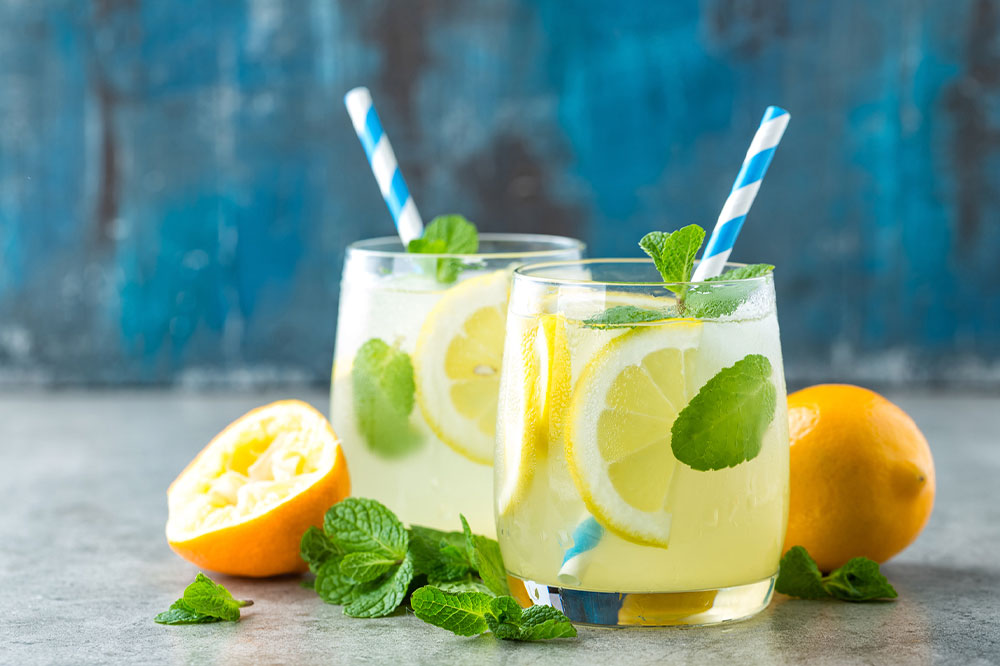Understanding the role of beverages
Food and drinks are two primary components of an individual’s meal plan. Besides food options, one can choose from a wide range of drinks and beverages. While tea and coffee are generally enjoyed regularly, energy drinks help rejuvenate oneself after a long exhausting day. One can often find themselves replacing meals with drinks. But is this process healthy? Can drinks be considered food? If so, what are their benefits? Let’s read on to find out.

Are drinks considered food?
Before we start dissecting the role of drinks in our daily meals, it’s essential to understand if drinks and beverages are considered to be food. The answer to this is a resounding yes. But, are they good and functional foods? That is decided based on the nutritional value and the health benefits of the particular drink. The FDA also regulates and approves certain drinks that can be considered food.
Coffee, for example, is considered a food. A lot of people across the world enjoy this delicious and aromatic beverage. But does it provide sufficient nutritional value? According to some sources, no. It means that coffee is not a functional or whole food. On the other hand, milk is regarded as a complete food. It is because milk is rich in proteins, vitamins, carbohydrates, and essential minerals required for good health.
The role of beverages in meals
By now, it is clear that beverages are food too. But, is there a place for drinks such as coffee, tea, and even milk in daily meal plans? Well, yes. Having beverages as part of regular meals could be beneficial too. It is because beverages are a great source of hydration. They work to replenish the body’s lost fluids via sweating, metabolism, breathing, and even discarding bodily waste. The drinks quench the thirst and help rehydrate the cells in the body. Not to mention, beverages such as tea and coffee also have some nutritional value. They contain antioxidants and vitamins that help the body and its organs function properly and stay healthy. That said, not all beverages can provide most nutrients the body needs. Therefore, it is important to add balance and variety to the food and beverages in the daily meal routine.
Healthy drink choices
Including healthy beverages in daily meals can be beneficial for many reasons. While one may enjoy it occasionally, others might include it in everyday meals due to its nutritional value. In either case, knowing the health benefits of the drink is of utmost importance. Take a closer look at the labels on the drinks before making a purchase. Look at the calories and the nutritional benefits it provides. Despite this, deciding which beverages are the best choice for your health can be challenging. Experts have come up with a list based on the calories delivered, the contribution to health, and the effects on health. Here are some of the top healthy drink choices from this list:
Water
Water, without a doubt, is one of the best beverages. It provides the body with everything essential. It supplements the lost fluids and helps restore lost electrolytes via sweating, breathing, and excretion. Not to mention, it is one of the only beverages that can help quench your thirst on a hot day without adding on the extra calories. The best part about water is that it is also one of the most affordable drink options and is freely available everywhere. Experts suggest drinking eight glasses of water every day instead of other beverages throughout the day to stay hydrated and healthy.
Tea and coffee
Tea and coffee are also good beverages that can be had daily but in limited quantities. They are rich in particular nutrients and antioxidants that help fight oxidative stress due to free radicals in the body. They are also the most consumed beverages across the globe. Certain studies have shown that tea and coffee can also help manage and fight against certain diseases. But, while there are pros to these drinks, there are also cons. These hot beverages are also available with added flavors, cream, milk, sugar, and other not-so-healthy ingredients. These additives can increase the risk of certain diseases, adversely affecting the overall health. Also, the caffeine that is present in coffee can have many negative side effects on one’s health. Experts suggest sticking to one cup of these beverages during the day.
Milk
Milk is considered a complete and whole meal across the globe. It is rich in minerals and vitamins such as calcium and vitamin D and has high protein levels. Those who do not drink animal milk can opt for alternatives like soy milk. Adults and children are recommended to have one or two glasses a day.